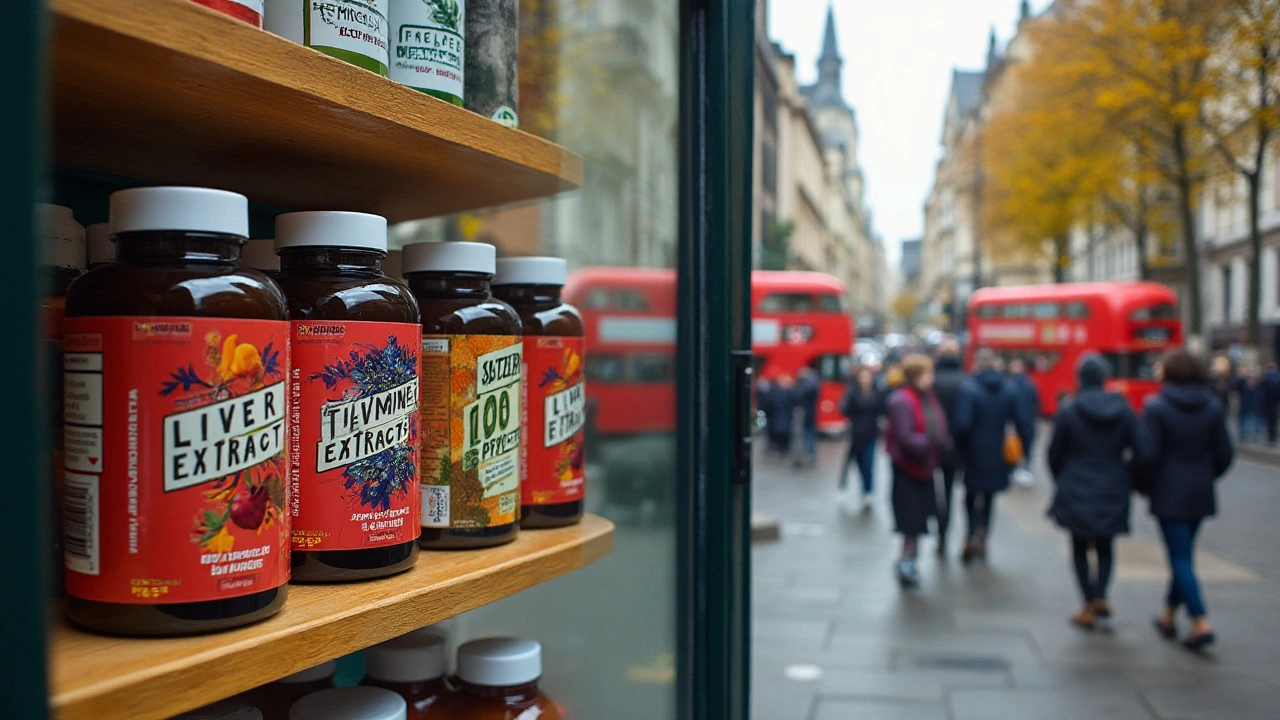Liver extract — what it is and why people use it
If you’ve heard about liver extract and wondered whether it’s worth trying, this short guide will give you the basics. Liver extract comes from animal liver (usually beef or pork) and is concentrated into powders, capsules, or liquids. People use it for iron, vitamin A, B12, and other nutrients that are hard to get from regular food—especially if you’re tired, anemic, or not absorbing nutrients well.
Benefits and risks in plain words
Benefits are straightforward: liver extract is nutrient-dense. A small dose can deliver B12, folate, heme iron (which the body absorbs easily), and choline. Athletes, people recovering from illness, and some vegetarians who eat small amounts of animal products find it useful for energy and blood health.
Risks matter too. Liver is high in vitamin A and iron. Too much vitamin A can cause headaches, nausea, and long-term bone or liver damage. People with hemochromatosis (iron overload) should avoid it. If you take blood thinners like warfarin, liver’s vitamin K content can interfere with dosing. Pregnant people should be careful—excess vitamin A can be harmful in pregnancy.
How to choose and use liver extract safely
Start small. Many desiccated liver supplements recommend 1–3 capsules a day; follow the label and don’t stack with other high-vitamin-A products. If you prefer food over pills, cooked beef liver once a week is a common approach—keep portions modest (around 50–100 g) to avoid excess vitamin A.
Pick a brand that lists the source clearly. Grass-fed or pasture-raised beef liver tends to have fewer contaminants and a better nutrient profile, but look for third-party testing for heavy metals and microbial safety. If a product doesn’t show testing or a clear source, skip it.
Watch for interactions. If you’re on prescription meds, especially blood thinners or vitamin A-containing drugs, talk to your doctor before starting liver extract. Also check iron status—taking iron when you don’t need it can cause harm.
Practical tips: store supplements in a cool, dry place and follow the expiry date. If you cook liver at home, use a meat thermometer to reach a safe internal temperature and avoid raw liver. If you feel unusual symptoms like persistent nausea, dizziness, or dark urine after starting liver extract, stop taking it and contact a healthcare provider.
Want help choosing a product? Look for transparent labels, clear serving sizes, and lab tests. If you want nutrient boosts but aren’t comfortable with liver, consider targeted supplements (iron, B12, choline) based on a blood test rather than guessing.
Liver extract can be a powerful, natural way to fill gaps in your diet—but it’s not a cure-all. Use it thoughtfully, check your labs, and get medical advice when needed.

